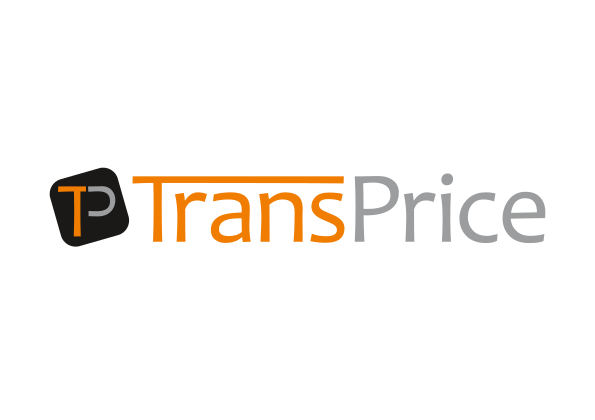The United Arab Emirates (UAE) has recently launched a new corporate tax regime, effective for fiscal years beginning on or after 1 June 2023. This substantial change indicates that businesses operating in the UAE will now be taxed on their profits, irrespective of their geographic location. This new tax regime underlines the increasing importance of transfer pricing planning in the UAE.
Transfer pricing constitutes a series of rules that influence how prices of goods and services are established between related parties. These rules are inherently designed to ensure fairness, and reasonableness of prices, and prevent artificial profit shifting between different tax jurisdictions.
In the context of the UAE, transfer pricing is administered by the Transfer Pricing Regulations (TPR), the decree-law along with the ministerial and cabinet decisions coupled with interpretations form the OECD Transfer Pricing Guidelines, 2022. The TPR introduces the arm’s length principle (ALP), which is the globally accepted standard for determining the fair market value of transactions between related parties.
The essence of the ALP is the presumption that unconnected parties would agree on identical prices for a transaction, given they were operating under similar circumstances. Consequently, businesses functioning in the UAE are required to ensure that their pricing structures for related parties (including the free zones and mainland) align with the prices charged by unrelated parties under the same circumstances.
The urgency of transfer pricing planning for businesses functioning in the UAE cannot be overstated for several reasons:
- Adherence to tax laws: The UAE tax authorities possess the authority to scrutinize transfer pricing arrangements and can make adjustments if they deduce that the prices do not meet the criteria of fairness and reasonableness. This could result in additional tax liabilities for businesses, emphasizing the need for proper transfer pricing planning.
- Mitigating tax risk: Ensuring compliance with the TPR can significantly minimize the potential tax risk for businesses. This is essential as tax investigations can be exorbitant, labor-intensive, and disruptive for businesses.
- Augmenting financial reporting: Proper transfer pricing documentation can aid businesses in enhancing the accuracy, tax planning and transparency of their financial reporting. This clarity could be advantageous for investors, creditors, and other stakeholders, increasing their confidence in the business’s financial position.
With the new tax regime in the UAE, businesses should pay heed to the significance of transfer pricing planning. A deep understanding of the TPR, along with the implementation of suitable transfer pricing policies, can help businesses alleviate their tax risks and boost the precision and clarity of their financial reporting.
Outlined below are some valuable tips for businesses regarding transfer pricing planning in the UAE:
- Recognize your related parties: The inaugural step in transfer pricing planning involves the identification of your related parties. These parties include any business entities that you exercise control over, or those that have control over you.
- Document your transfer pricing arrangements: As per the TPR, businesses are obligated to document their transfer pricing arrangements. This documentation should encapsulate information regarding the nature of the transactions, the prices levied, and the justifications for those prices. Maintain a document for price setting mechanism, even if you are not fitting in to the full-fledged transfer pricing documentation threshold.
- Utilize Comparable Uncontrolled Transactions (CUPs): CUPs are considered the most reliable methodology for determining the arm’s length price of a transaction. They involve a comparison of prices charged for analogous transactions between unconnected parties. It is often easy to use CUPs if internal information on the prices are available. Evaluate if you are using similar products and services in similar circumstances as that of related parties.
- Leverage other methods when CUPs are not feasible: If CUPs cannot be applied, businesses can resort to other methods to ascertain the arm’s length price of a transaction. These methods encompass the Comparable Profits Method (CPM), the Resale Price Method (RPM), and the Cost Plus Method (CPM), Transactional Net Margin Method (TNMM) and Profit Split Method (PSM).
- Frequently review your transfer pricing arrangements: The TPR mandates that businesses continually review their transfer pricing arrangements. This is vital as the prices of goods and services fluctuate over time, which could affect the fairness and reasonableness of prices charged between related parties.
By adopting these guidelines, businesses can ensure their compliance with the TPR, hence minimizing their exposure to tax risk in the evolving tax environment of the UAE.
In conclusion, the introduction of the new corporate tax regime in the UAE highlights the paramount importance of sound transfer pricing planning. Businesses operating in this jurisdiction need to have a deep understanding of the Transfer Pricing Regulations (TPR) and how to apply them effectively. Ensuring compliance, minimizing tax risk, and enhancing financial reporting are just a few of the compelling reasons for businesses to focus on these matters. Implementing strategies such as identifying related parties, maintaining proper documentation, leveraging Comparable Uncontrolled Transactions (CUPs), using alternate methods when necessary, and conducting regular reviews of transfer pricing arrangements can ensure conformity with the regulations, thus reducing potential tax liabilities. As the UAE continues to refine its tax legislation, businesses must stay informed and prepared to adapt their strategies accordingly. The emphasis on proactive transfer pricing planning is not merely a requirement but a strategic step towards securing the financial health and sustainability of businesses in the changing UAE tax environment.
